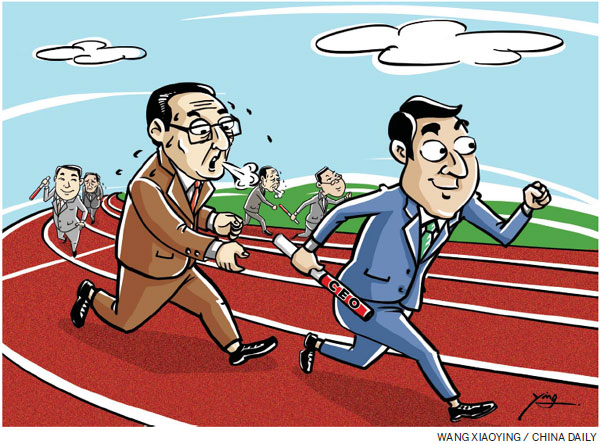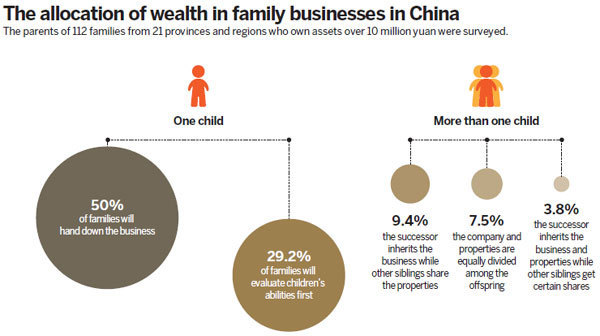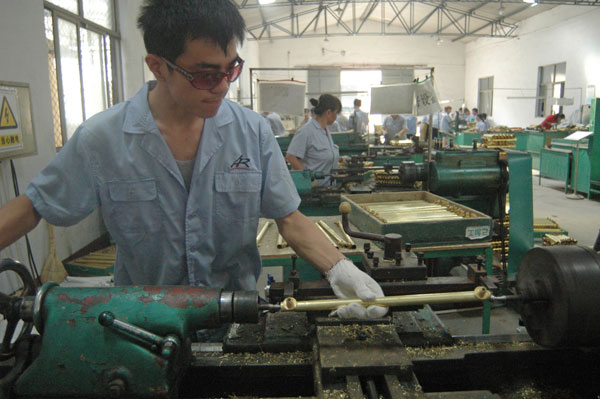Baton passes to the next generation
Updated: 2015-08-14 08:57
By Yu Ran(China Daily Europe)
|
|||||||||||
New breed of young entrepreneurs are taking over their family businesses and bringing in new ideas

Pan Jianzhong invested his own money into upgrading his family-run shoemaking business in 1992 to prove a point to his mother. Concerned about the risks, Li Ailian, was unsure whether her son's plan to automate the Juyi Group would pay off. She was wrong, as the 1 million yuan ($161,290; 146,919 euros) he pumped into the firm has produced bumper dividends. "I believed the only way to increase the size of the company was to use machines to manufacture high-quality products in a shorter space of time," Pan, general manager at Juyi Group, says.
"My mother is rather conservative and was afraid to take the risk of spending a large amount of cash on expensive machinery, so I had to invest my own money," he says. "She thought the cost would not lead to higher profits, but it has."
In the 1990s, the Juyi Group employed just a few hundred workers. Now, it has 5,000 staff members at a factory in Wenzhou, a city in Zhejiang province, and manufactures 10 million pairs of shoes a year for overseas clients such as DHM, a leading retailer in Germany.
"The company uses computer-guided stitching machines and laser printers that work 10 times faster than traditional hand-crafting," says Pan, who declined to reveal detailed financial figures for the privately owned company. "We have continued to upgrade the factory."
Family businesses, such as the one Pan runs, sprouted up in the 1980s when China opened its doors to the rest of the world. But now they are entering a new phase, as the second-generation takes over the reins.
According to a report by the All China Federation of Industry and Commerce, 75 percent of these companies will be transformed through new technology in the next few years.
The old way of doing business is gradually changing, even though it once generated vast profits. The 2015 Hurun Global Rich List showed that the combined net worth of Chinese billionaires is $1.2 trillion. The country has now more self-made billionaires that anywhere else in the world.

Jack Ma, founder of e-commerce giant Alibaba Group Holding Ltd; Wang Jianlin, chairman of property behemoth Dalian Wanda Group; and Zong Qinghou, the entrepreneur CEO of beverage company Hangzhou Wahaha Group, have turned China into a hotbed of privately owned enterprises.
"Entrepreneurs in China have emerged alongside the nation's decision to open up," Zhang Weijiong, vice-president of the China Europe International Business School, says at the CEIBS China Family Heritage Forum 2015 last month. "Now most family businesses (that were started in the 1980s) are undergoing a succession process from the first to the second generation."
A smooth transition will be crucial to China's economy in the years ahead. Still, one of the biggest challenges the new generation of business leaders face is to convince their parents to change with the times and invest in high-tech manufacturing, which will increase the quality of their products.
Today's Top News
Sodium cyanide in Tianjin to be collected, neutralized
Premier Li pledges thorough investigation into deadly blasts
Experts say J-10s would benefit Iran
Indonesia rescuers head to mountains in missing plane search
Questions remain as fires put out after Tianjin blasts
China probes into Tianjin blasts, experts focus on chemicals
Crafty rhetoric, insincere politics
Japan's Abe offers no fresh apology for past aggression
Hot Topics
Lunar probe , China growth forecasts, Emission rules get tougher, China seen through 'colored lens', International board,
Editor's Picks

|

|

|

|

|

|






